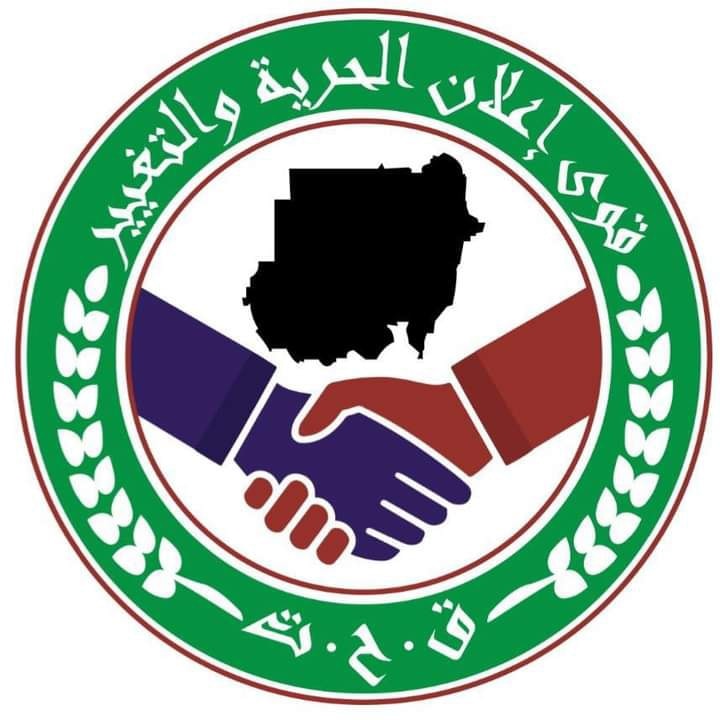FFC and opposition parties will support agreement with Sudan military
The Forces for Freedom and Change-Central Council (FFC-CC) and several other political groups yesterday confirmed their willingness to sign a framework agreement on a new government with the military junta.
 Logo of the Forces for Freedom and Change (File photo: FFC)
Logo of the Forces for Freedom and Change (File photo: FFC)
The Forces for Freedom and Change-Central Council (FFC-CC) and several other political groups yesterday confirmed their willingness to sign a framework agreement on a new government with the military junta.
The framework agreement is based on the new transitional constitution developed by the Sudanese Bar Association in August this year and amended after comments of the current military rulers and the Sudan Revolutionary Front (SRF) rebel alliance.
In a press statement on Sunday, following a meeting held at the request of the AU-IGAD-UN Trilateral Mechanism at the premises of the National Umma Party (NUP) in Omdurman, the participating groups said that the military need to take certain steps to create an atmosphere of safety.
The groups, which included SRF leaders and several political parties, including the Republican Party which was forbidden during the rule of Al Bashir, said that the key step is to release political detainees and stop violence against peaceful protestors.
The statement further said that the parties agreed on a political settlement in eastern Sudan as one of the top priorities for the transitional period.
The meeting yesterday came in light of the faltering of the negotiation process after statements of the military contradicted those of the FFC-CC about the date on which the agreement will be signed.
Meanwhile, Nasreldin Abdelbari, Minister of Justice during the government of Abdallah Hamdok and legal advisor of Mutasim Ali, stressed the necessity of basing the draft constitution on the fact that the transitional period is constituent and not just an ordinary transitional period.
Abdelbari’s name has been circulating on social media for the past few months, saying that he is a candidate for the post of prime minister.
In a joint article published on the Atlantic Council website, Abdelbari and Ali said that deciding on the relationship between the state and religion, language, and the relationship between the central government and the parties, should not be postponed until after the transitional period.
They also stressed the need for the draft constitution to state unambiguously that the transitional government should be technocratic. Delegating the authority to nominate the prime minister and members of the Sovereignty Council to the political forces that signed the political declaration will undoubtedly lead to igniting deep political differences, according to the article.











 and then
and then